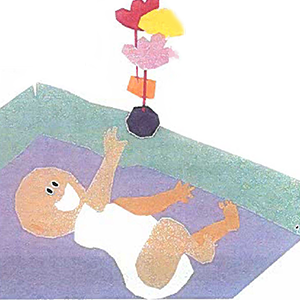Family
Set firm, fair rules and keep them the same to teach your child respect and discipline. Timeouts in a neutral area of the house (one minute for each year of life). Also, praise them for things that they do correctly. Establish routines around the house and traditions that they can be a part of.
Development
Read books daily and use simple words to describe the pictures in them. Avoid TV, computers, and video games, and encourage physical activity. You may start to notice tantrums. Do not bribe them to stop the behavior as this will only encourage more and often longer tantrums. As long as they are in a safe environment and are not hitting or biting, allow them to “blow off steam”. Do not yell at them during this time. Allow them to self-soothe.
Health
Your child should be off of the bottle by now; especially none in the crib. Have a night-time routine, one nap per day, brush teeth twice a day with children’s fluoride toothpaste (size of a grain of rice) and a soft toothbrush. They should have a dentist by now. Encourage physical activity.
Nutrition
Transition to whole milk. Limit the amount of cow’s milk to 16-20 ounces per day as too much milk can decrease appetite and can lead to anemia. Encourage iron-rich foods like meats, chicken, beans, green and leafy vegetables, and rice cereal. It is normal for your child to have a decrease in appetite as his/her growth rate slows at this age. Do not force them to eat; let them pick and choose and self-feed. Avoid offering just what your child “likes” simply to get them to eat. It can take 15-20 times of trying new foods before they eat it. Try to sit as a family for most meals. Use the plate visual from choosemyplate.gov to promote healthy eating.
Safety
Make sure your home is childproofed! Always be close enough to touch your child around water – set your hot water heater at 120 °F or on low. In the kitchen keep children safe while cooking and hot liquids out of reach. Beware of small objects your child can put in their mouth and choke on. Keep children in a rear-facing car seat until at least age 2 or until they reach the highest weight or height limits on their car seat.
Poison Control: 1-800-222-1222
After Hours and Weekends
After 4:00 PM and before 8:00 AM
For medical advice when People’s is closed call After Hours Nurse line at 512-478-4939
Download PDF here.



